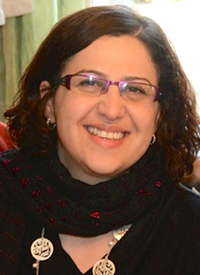“We regret to inform you that the conference has been postponed as the current political environment is not conducive to safe, critical face-to- face engagement.
We will keep you updated on future plans.”
INAUGURAL DECOLONISING COMMUNICATION PROFESSIONS CONFERENCE
CAPE TOWN SOUTH AFRICA
30 June- 2 July 2025
CONVENORS: Harsha Kathard (University of Cape Town, SA), Mershen Pillay (Massey University, NZ), Vishnu Nair ( University of Reading University, UK), Maria Rosa Brea-Spahn (New York University, USA),
This conference is an inaugural event and will create an important space for international scholars on communication and disability and how different epistemologies beyond positivist paradigms and medical model can be utilised in Speech, language hearing professions. It will provide an opportunity to advance decolonial science and reinvent its clinical service delivery models. It is also critical for reconceptualization of Speech-language Therapy and Audiology education especially for Global Southern contexts which adopt Euro-centric curriculum.
The sessions will focus on emerging models of decolonial praxis (pedagogies, scholarship, curricula, academic policies).The proposed conference represents a groundbreaking initiative in the fields of audiology and speech, language therapy (SLT) and broader communication sciences. This event will be the first of its kind internationally to explicitly focus on decolonial approaches within these disciplines, creating a crucial space for dialogue, collaboration, reflection, and innovation.
Aims and Objectives:
1. To critically examine and challenge Eurocentric paradigms in communication sciences.
2. To explore and promote alternate knowledge systems such as diverse Indigenous systems and practices relevant to communication disorders and interventions.
3. To facilitate dialogue between Global South scholars and practitioners on decolonial approaches in SLT.
4. To develop strategies for integrating decolonial perspectives into research, education, and clinical practice in communication sciences.
5. To foster multidisciplinary and cross-institutional national and international collaborations that will lead to the development of culturally responsive and contextually appropriate practices
SPEAKERS
We will add other speakers as they agree

Reem Khamis
Dr. Reem Khamis, a certified Speech-Language Pathologist (NY), holds a Ph.D. in Speech and Language Pathology from Teachers College, Columbia University. Specialising in Arabic diglossia and sociolinguistic language processing, Dr. Khamis focuses on evidence-based assessment and intervention for Arabic-speaking children in the diaspora. Current research includes Arabic heritage language assessment, aphasia recovery, and phonological development in Moroccan Arabic-speaking children. A strong advocate for interprofessional collaboration, Dr. Khamis partners with linguists and neuroscientists to advance inclusive, evidence-based practices in speech pathology.
TOPIC: coloniality tropes in research; the brokerage trope, the theory trope, the exotic trope, and the rigor trope
Betty Yu and Vishnu Nair

Dr. Betty Yu is a Professor in the Department of Speech, Language, and Hearing Sciences with expertise in bilingual/multilingual children’s communicative, linguistic, and sociocultural development. Her research explores the intersection of race, language, disability, and systemic inequities, with a focus on linguistic disability justice and combating racio-linguistic discrimination and ableism in the field. Dr. Yu serves on the advisory board of the Asian Pacific Islander Speech-Language-Hearing Caucus and is a co-managing editor of the Journal of Critical Study of Communication and Disability. She holds a Ph.D. in Special Education and is certified in speech-language pathology with extensive clinical expertise.

Dr. Vishnu KK Nair is a Lecturer in the School of Psychology and Clinical Language Sciences at the University of Reading, where he has taught since 2021. With a Ph.D. in Cognitive Science from Macquarie University and a postdoctoral fellowship at NYU, Dr. Nair’s research explores the intersection of race, disability, and multilingualism in speech, language, and hearing sciences. His work emphasizes equity and social justice, focusing on the challenges faced by minoritized multilingual families and the pathologization of their experiences. A speech-language therapist, Dr. Nair is passionate about fostering inclusive practices through critical pedagogy and transformative research methodologies.
Topic: What can Speech-Language-Hearing Sciences learn from critical and decolonial disability studies?

Octavian Robinson
Dr. Octavian E. Robinson is an Associate Professor and Director of the Center for ASL and Deaf Equity. A trained historian with expertise in Critical Deaf and Disability Studies, Modern U.S. History, and Deaf and Disability History, Dr. Robinson’s work focuses on language attitudes toward signed languages in academia and linguistic protectionism within Deaf communities. His research explores the politics of the body and difference, intersecting with themes of women, gender, sexuality, and African-American histories. Dr. Robinson holds a Ph.D. in History from The Ohio State University and M.A. and B.A. degrees from Gallaudet University.

Maria-Rosa Brea-Spahn
Dr. María Rosa Brea-Spahn, Ph.D., CCC-SLP, is a Clinical Associate Professor in the Department of Communicative Sciences and Disorders at NYU Steinhardt and the inaugural Director of the Bilingual Extension Track. A bilingual speech-language therapist with an Interdisciplinary Ph.D. in Cognitive Neural Sciences from the University of South Florida, her work focuses on the intersection of multilingualism and disability. Dr. Brea-Spahn is committed to culturally responsive teaching, linguistic liberation, and social justice. Her impactful contributions have earned prestigious accolades, including the NYU Martin Luther King, Jr. Faculty Award and ASHA’s Certificate of Recognition for Special Contributions in Multicultural Affairs.

Mershen Pillay
Prof. Mershen Pillay, an Audiologist and Speech Therapist, is a dedicated scholar-practitioner with over two decades of experience across clinical, academic, and research domains. Currently at Massey University, he also holds honorary positions at the University of Cape Town and the University of KwaZulu-Natal. Prof. Pillay is a co-founder of EPIC, developed with Harsha Kathard to decolonize professional education, research, and practice. His research spans swallowing disorders, workplace hearing disorders, and innovative projects connecting disability to food sovereignty and informal sector communication. Guided by complexity theory and critical frameworks, he is passionate about reimagining healthcare’s approach to disability.
Gabriela Veronelli

Gabriela Veronelli is a professor and researcher of Latin American political theory and decolonial perspective, bilingual paraprofessional, popular educator, translator and journalist, born and raised in Argentina, and migrant in the US since 2001. She is an affiliated researcher with the Interdisciplinary School of Higher Social Studies (IDAES, Argentina). She earned a doctoral degree from the transdisciplinary program in Philosophy, Interpretation and Culture at State University of New York-Binghamton (2013), and completed two stays at the Latin American and Caribbean Area Studies program at Binghamton University (2017-2019) and the Center for Global Studies and Humanities at the Duke University (2021-2022). Gabriela’s reflection on the coloniality of language has contributed to the theorization of race from the modernity/coloniality perspective and raised new questions to effectively combat racism in different linguistic domains. Her work has been published in prestigious journals like Universitas Humanística and Hypatia Journal of Feminism Philosophy, and compiled volumes. In 2022 she co-edited a special issue Decoloniality and English Language Teaching in the Global South for Ikala Revista de Lenguaje y Cultura on. Gabriela has been keynote and panelist speaker at national and international conferences and programs. She is currently directing the project Latinx Testimonios and Pláticas on Linguistic Shame, Resistance and Healing working with multilingual students at Northeastern Illinois University, a Hispanic Serving Institution in Chicago, IL.
TOPIC: Possibilities and Challenges of Undoing the Coloniality of Speech.

Nelson Maldonado-Torres
Nelson Maldonado-Torres is Professor of Philosophy at the University of Connecticut, and Professor Extraordinarious at the University of South Africa. A former President of the Caribbean Philosophical Association (2008-2013), he is Senior Associate of the BlackHouse Kollective-Soweto, and Co-Chair of the Frantz Fanon Foundation. His work focuses on ethics, social, political, and decolonial philosophy with particular attention to philosophical expressions in the Global South. Recent publications include the co-edited book Decolonial Feminism in Abya Yala (2021), and book chapters such as “Combative Decoloniality and the Abolition of the Humanities: A Manifesto,” in the Routledge Companion to Postcolonial and Decolonial Literature (2025), and “Palestine, the War on Decolonization, and Combative Decoloniality” in the SAGE Handbook of Decolonial Theory (forthcoming). Also, with Zandi Radebe, he is the author of “Combative Decoloniality and the BlackHouse Paradigm of Knowledge, Creation, and Action” in Knowing-Unknowing: African Studies at the Crossroads(2024).
TOPIC: Frantz Fanon on Race, Language, and Decolonial Communication: A Tribute in his 100th Anniversary
Dr. Art Blaser

Dr. Art Blaser is a Professor of Peace Studies and Political Science at Chapman University, where he has taught since 1981. He co-directs the university’s Disability Studies minor and focuses on disability rights, human rights, and international NGOs. After experiencing a brain-stem stroke in 1993, he became a full-time wheelchair user and an advocate for disability rights. He has served on the board of the Dayle McIntosh Center, Orange County’s Center for Independent Living. Blaser holds a Ph.D. in Political Science from Ohio State University and a J.D. from Southwestern Law School. Recognized for his contributions to accessibility and education, he has received multiple awards, including Chapman University’s Faculty Excellence Award and the Karen Carr Founder Vision Award from the Orange County [southern California, US] L'Arche Wavecrest Community. His work continues to influence disability advocacy and policy.
CONFERENCE FORMAT AND PARTICIPATION
The approach to the symposium will be “unconferencing to facilitate communication and participation”
Panel discussions and round tables and critical conversation spaces will be created for generative dialogues
Critical discussions around an artifact, framework, or methodological choice. Short presentation by a scholar (15 minutes) followed by breakouts with questions and tech tools to engage in criticality and co-learning to disrupt the notion of traditional conferencing which is a colonial legacy). Conversations and Analysis for Emancipation (#CAFE) process will be used.
The conference will feature speakers as listed.
As the conference is face-to-face and participatory in nature, participants are invited to submit 200 word abstracts which will be peer-reviewed and included into conference discussions. There will be panel discussions and round tables and critical conversation spaces will be created for generative dialogues.
The speaker sessions will be shared live and recorded while the highlights of the discussion sessions and outcomes will be shared online post-conference.
REGISTRATION
The conference registration will open on 15 February 2025. Given the limited number of places, please register early to avoid disappointment.
Conference registration fees:
(Sign up by 12 PM (SAST) on April 30 for the Early bird special!)
International attendees: USD 200 (USD 180 early bird)
Local attendees: USD 50 (USD 40 early bird)
Please register via this link.
For queries, contact Tasneem Kharbhai, Nasreen Adhikari
Programme Details will follow in March 2025
If you would like to submit an abstract for this conference, please click here to learn more and to send your abstract.
Visas
You may need a visa in order to come into the country, please see this link to learn more on how to get your Visa:
Accommodation and Travel
Attendees must make own travel and accommodation arrangements.
Please note that South Africa’s public transport is not the best so you may need to Uber to the venue. Here is a list of place you can stay at close to the venue:
- Knightsbury Guest House
- Little Scotia Guest House
- Stylish Gem - The Rondebosch
- Newlands Cottages
- Newlands Guest House
- Carmichael House Boutique Hotel
- Roodenburg House
- Banksia Boutique
- Westbury House Guest House
